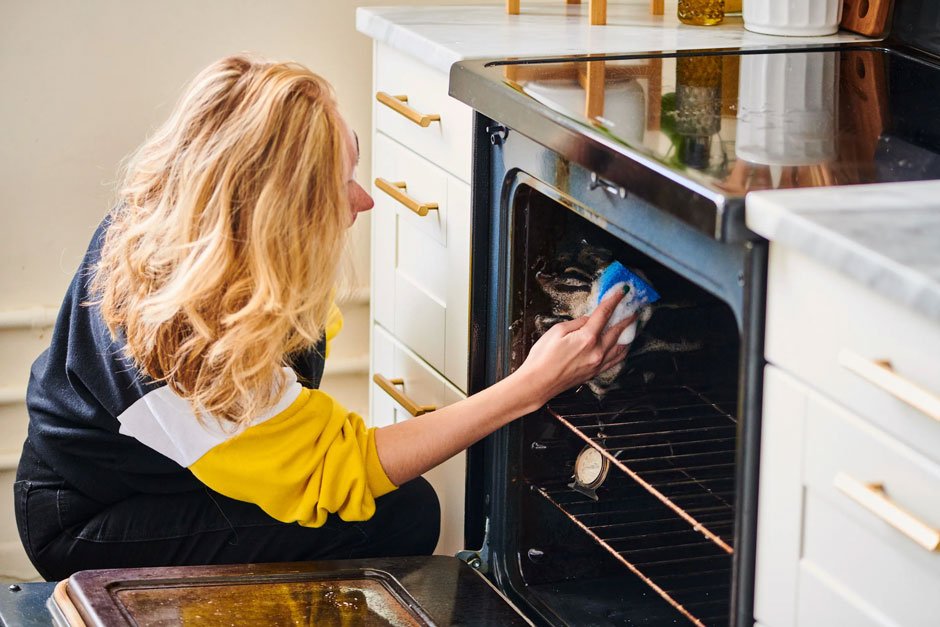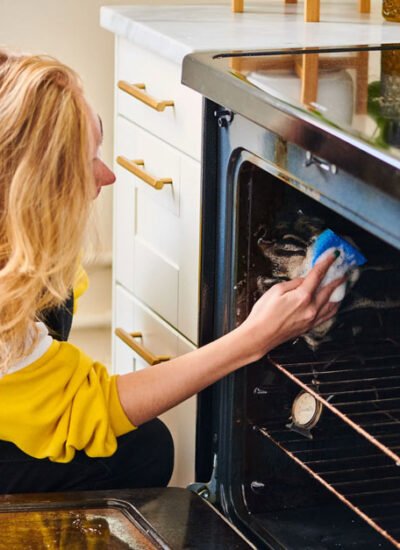 The kitchen is often called the heart of the home, but it can also become the most chaotic place. Between cooking, eating, and cleaning, things pile up quickly. Dishes overflow, crumbs scatter, and odors creep in before you even notice. For many households, this cycle feels endless and exhausting.
The kitchen is often called the heart of the home, but it can also become the most chaotic place. Between cooking, eating, and cleaning, things pile up quickly. Dishes overflow, crumbs scatter, and odors creep in before you even notice. For many households, this cycle feels endless and exhausting.
But keeping your kitchen clean doesn’t always mean spending hours scrubbing. The secret lies in small, smart habits and upgrades that stop messes before they grow. In this article, you’ll explore six practical ways to keep your kitchen cleaner every day. You’ll see what causes the problems, why they matter, and how simple solutions make a lasting difference.
1. Clean As You Cook
Think about when your kitchen looks the worst. It’s usually during meal prep, when vegetable peels, sauce splashes, and empty wrappers take over the counter. If you leave everything until the end, the job feels overwhelming.
Instead, build the habit of cleaning as you go. Keep a bowl on the counter for scraps, and drop them in immediately. Wipe surfaces right after chopping or stirring, not 30 minutes later. Rinse knives and spoons before reaching for the next ingredient. These micro-cleanups prevent a huge pile from forming. By the time the meal is ready, your kitchen already looks halfway done.
2. Manage Food Waste Smarter
One of the biggest reasons kitchens feel dirty is because of food scraps. Leftovers in trash bins attract pests, create bad odors, and demand extra cleaning. Traditional bins also fill up quickly, adding more to your to-do list.
A modern kitchen sink garbage disposal tackles this problem directly. It grinds food waste into fine particles that flow safely away with water. This means fewer scraps in bins, less smell in your home, and no need for constant trash runs. It’s not just about convenience—it also reduces landfill waste, making your kitchen both cleaner and more eco-friendly.
3. Organize Storage With Containers
Pantries and cabinets often become cluttered with half-open packets and random bags. Not only does this look messy, but it also increases food waste because items get forgotten. When everything is jumbled, spills and crumbs spread faster.
Switching to clear, stackable containers solves this problem. You can see exactly what’s inside, labels make identification easy, and airtight lids keep food fresh.
Imagine grabbing flour without worrying about it spilling everywhere. Or reaching for rice and finding the jar already neat and measured. Organized storage cuts down on accidents and keeps shelves clean.
4. Keep Cleaning Tools Within Reach
Sometimes mess stays longer than it should simply because supplies are far away. Spilled coffee on the counter can sit for hours if you don’t have a cloth nearby. By then, it’s sticky and harder to wipe.
The solution is to make cleaning effortless. Keep sprays, cloths, and brushes in a basket under the sink or in a drawer close to your prep area. Store paper towels right where you usually spill drinks. Quick access encourages quick action. The sooner you clean, the easier the job—and the cleaner the kitchen stays overall.
5. Declutter Your Countertops
A cluttered counter attracts dust, crumbs, and grease. Appliances, spice jars, and random mail often take up all the space. Not only does this make cleaning harder, but it also makes cooking stressful because you’re working in a crowded area.
Clear off everything you don’t use daily. Keep your coffee maker if you use it each morning, but store the slow cooker in a cabinet until needed. Fewer items on the counter means faster wiping and less buildup. Plus, your kitchen will look instantly neater and more welcoming.
6. End Each Day With a Reset
No matter how busy your day was, ending with a quick reset makes a huge difference. Leaving dirty dishes or crumbs overnight allows stains and odors to build up. The next morning, you’re greeted with yesterday’s mess, which feels discouraging.
A nightly reset doesn’t need to take more than 10 minutes. Wash the last few dishes, wipe down counters, and empty the trash.
These small actions give you a clean slate to start the next day. Waking up to a tidy kitchen motivates you to keep it that way, reducing stress and making mornings easier.
Conclusion
A cleaner kitchen doesn’t come from scrubbing harder, it comes from smarter choices. By cleaning as you cook, managing waste better, and storing items neatly, you stop messes before they grow.
Keeping tools handy, clearing counters, and resetting nightly keep the space fresh without hours of work. These habits may seem small, but together they transform your kitchen into a place that feels welcoming every day. Less clutter, fewer odors, and faster cleanup mean more time for what really matters: sharing meals and moments with the people you love.





Leave a Reply